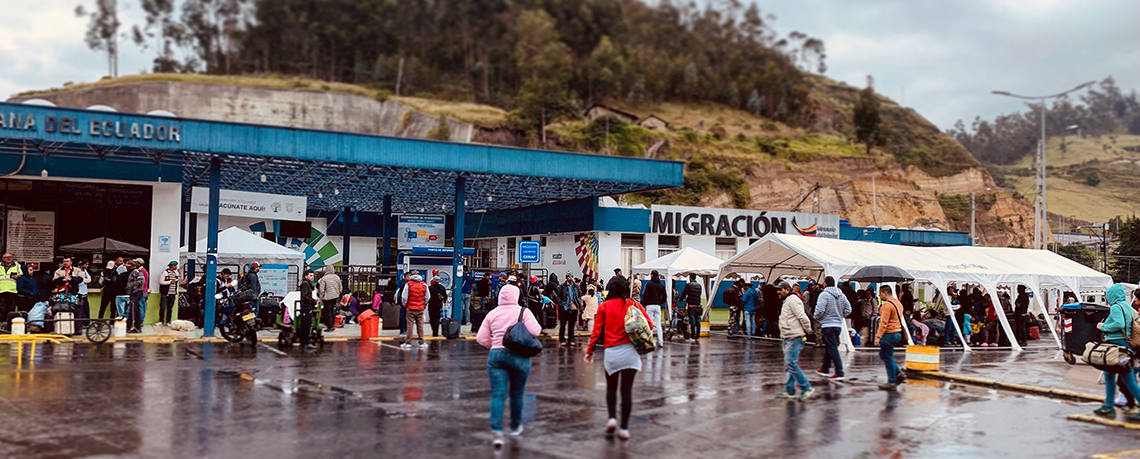This blog was cross-posted from Medium.
“You never think it will happen to you.” That’s the simple, devastating message a board member of the Women’s Refugee Commission (WRC) once delivered on Capitol Hill about becoming a refugee herself. So many refugees would say exactly the same thing. And now it is happening to over 3 million Venezuelans forced to flee a country that was once a safe and prosperous homeland.
A new report from WRC documents the very difficult circumstances for Venezuelan women and children who have sought refuge in Ecuador and Peru. As conditions inside Venezuela continue to deteriorate, the profile of those on the run has changed. More women and children are arriving in neighboring countries. More young women are traveling alone, and many children are unaccompanied or separated from their parents. The Venezuelans now seeking protection outside their country don’t have the financial resources to cope with their changed circumstances in a new land.

The border crossing at Tulcan, Ecuador. © WRC/Omar Robles
In every refugee and migrant situation the WRC has monitored, women and girls are at particular risk of sexual exploitation and abuse. This is certainly true for Venezuelans. During our mission in late January, we heard persistent reports of survival sex, sexual exploitation, assault, and sex trafficking. With few financial resources and limited opportunities to work, survival sex is often the only option Venezuelan women and children have to ensure their own survival and that of their family. Unless they are pregnant, young women traveling alone are not prioritized for targeted assistance such as humanitarian transport or food aid, yet they are highly vulnerable to all forms of abuse. Little attention has been given to the specific needs of LGBTI Venezuelans, including services for those who are survivors of sexual assault.
Peru and Ecuador have honored their international commitments and welcomed hundreds of thousands of desperate Venezuelans in need. These are not wealthy countries, yet international humanitarian assistance for displaced Venezuelans in these and other countries remains far short of what’s required to provide basic support. Without this assistance, pressures are rising as host communities struggle to cope with the influx. Xenophobia is on the rise and often features stereotypes of women and girls that are disturbing and dangerous. There is growing concern about a backlash against Venezuelans looking for work and trying to access services such as healthcare or schooling for their children.
On this issue of work, the refugees and migrants WRC spoke with identified access to jobs as the most important factor in ensuring their protection. At the same time, it is a constant source of risk for many. These risks run the gamut from sexual harassment in the work place, to abuses relating to their pay, to rising resentment from local people that Venezuelans are undercutting salaries and taking their jobs.
The WRC report urges donors to recognize the gravity of the situation and provide strong funding for the 2019 Regional Appeal for Venezuelan Refugees and Migrants. We also detail recommendations to the governments of Peru and Ecuador on strengthening protection for vulnerable Venezuelans, especially in the areas of documentation and regularization of their status. And WRC recommends immediate action by the governments and humanitarian community to improve protection and services for all those at risk of gender-based violence.
While much of the attention to the Venezuela crisis remains directed at events inside Venezuela, we cannot forget the millions struggling to survive in neighboring countries. They and the communities hosting them need to see that the international community is not abandoning them when they most need the help.
Read The Time to Act Is Now: Addressing Risks of Exploitation for Venezuelan Women and Children Seeking Refuge

